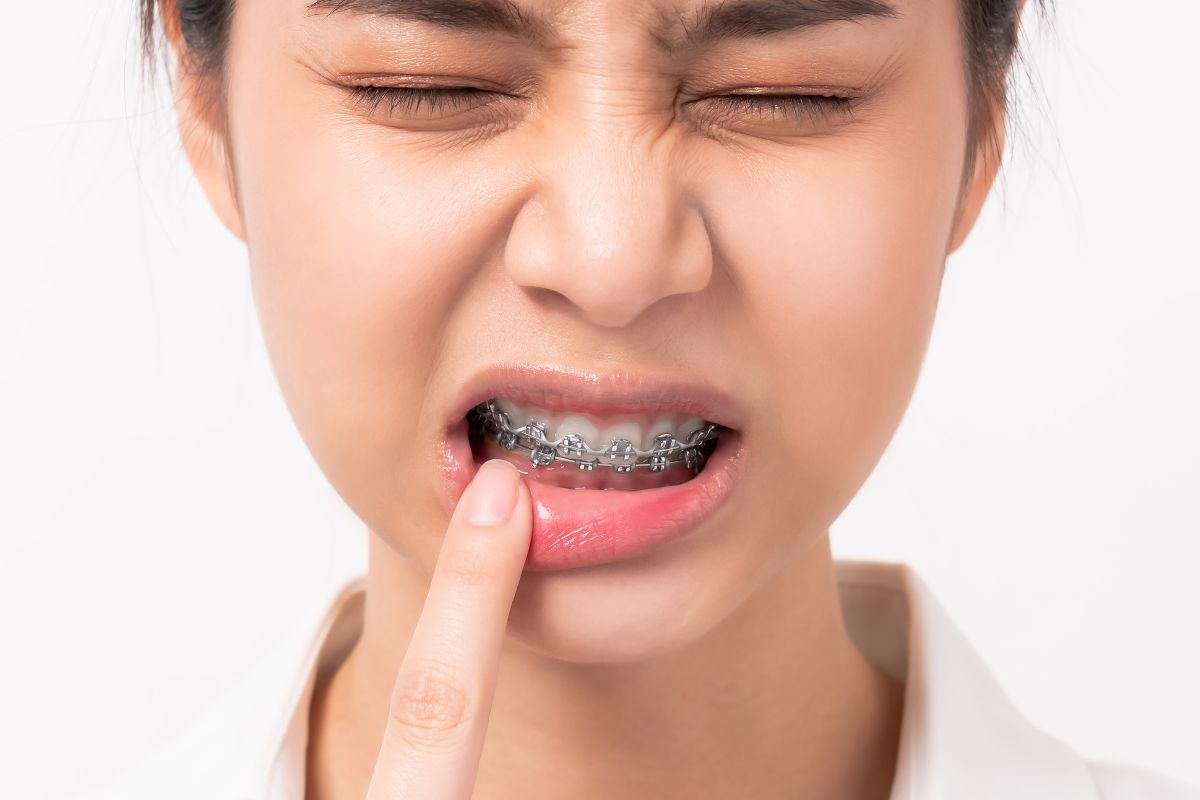Let’s dig a little deeper and check the ways and things that one must be mindful of in order to maintain good oral health and save themselves from severe dental issues.
- Don't skip brushing your teeth before bed
- There’s no big revelation in the fact that throughout our adult years, our parents have continually urged us to brush our teeth before we are off to bed. Not only this, but it is also generally advised to brush at least twice daily. Many of us still do not brush our teeth at night as well. However, doing this before sleeping helps in getting rid of the bacteria and germs that gather throughout the day. Additionally, it guards against serious microbial attacks on our teeth, which might worsen if a food particle is left on the teeth. As the germs have more uninterrupted time at night which makes it easier for them to attack. Therefore, it's crucial to brush your teeth before sleeping.
- Make flossing a priority along with brushing
- Flossing can eliminate plaque and bacteria hiding between the teeth that your toothbrush can't reach. Clearing away debris and food that gets stuck between the teeth, flossing can help remove these and also help avoid foul breath. For those with orthodontic appliances, learning how to floss with braces is especially important to maintain good oral hygiene and prevent buildup in hard-to-reach areas.
- Moreover, it is often recommended that people floss their teeth every single day even if they feel that there’s no need for it. The majority of dentists advise careful flossing all the way to the gumline before gripping the tooth's side with up-and-down motions. It's vital to avoid snapping the floss up and down between the teeth, as this can hurt and can limit how well it removes plaque.
- Consume fresh fruits and vegetables
- Although ready-to-eat foods seem easily accessible, they are not the best for your teeth. Fresh and organic food is ideal for your teeth since it includes more beneficial fiber and is also more nutrient-packed. This is one big reason why parents are advised to introduce children to fresh and more uncooked meals at a younger age. For example, instead of wondering can you eat chips with braces, it's better to opt for softer, more natural alternatives that support oral health. We all must try to stay away from extremely mushy processed food, stop breaking things up into little bits, and start using our jaws—so that our teeth and jaws become stronger and get used to eating such types of meals.
- Eat fewer items rich in sugar and acid
- Ever since we are younger we keep heard that sugar consumption can cause cavities. Studies show how sugar significantly contributes to poor tooth health outcomes. Candy and pastries are typical influencers of cavities, but many processed meals also include added sugar. Dentists often advise consumers to keep their daily sugar intake under 10% of total calories. And later on, can reduce this to 5 percent, which would further reduce the incidence of cavities and other oral issues.
- Additionally, according to experts, starchy foods like crackers, bread, chips, and pasta might contribute to tooth decay. These meals stay in the mouth for a long time and decompose into simple sugars, which acid-producing bacteria feed on. Tooth decay may result from this acid.
- Hence, consuming lots of fiber-rich fruits and vegetables as well as dairy products without added sugar in place of starchy foods is always recommended for healthy teeth.
- Make at least two annual trips to the dentist.
- In order to maintain healthy oral health, visiting a dentist for a checkup every six months is advised by experts. They will help you clean the teeth, and get rid of plaque that has developed during a regular dental checkup. Moreover, the dentist will look for visible indications of oral health conditions such as mouth cancer, gum disease, cavities, and other problems. The use of dental X-rays to look for cavities is occasionally also possible.
- Nevertheless, the new study's even supported the notion that children and teenagers should visit the dentist every six months to help avoid cavities. Adults who maintain good oral hygiene every day are at minimal risk of developing oral health issues, however, they should also consider visiting the dentist less regularly in order to be on the safer side.
- Make use of fluoride
- Fluorine is a chemical substance found in soil. Nowadays, it is a frequently found element in toothpaste and mouthwash because many experts think it helps prevent cavities. However, some people may not use fluoride at all, and some dental products do not include it.
- Even if a person takes good care of their teeth generally, evidence suggests that a lack of fluoride can cause tooth decay. According to a recent study, brushing and flossing alone do not protect against cavities if fluoride is not used. In many American localities, fluoride has been added to the water supply. WHO and the Centers for Disease Control and Prevention are two organizations that endorse this approach.
- In case you are not able to use fluoride-rich water like this then you try to find a toothpaste that has fluoride in it such that it can compensate for the daily need for fluoride.
- Use An Antimicrobial Mouthwash Every Day
- You might have seen advertisements that portray mouthwash as a necessity for maintaining good dental health, yet many people don't use it because they don't know how it actually works.
- Mouthwash benefits the mouth in three different ways: it lessens the amount of acid present, cleans difficult-to-brush areas near the gums, and remineralizes the teeth. Moreover, mouthwashes can be a helpful tool for restoring equilibrium. There is no denying the fact that mouthwash is particularly helpful in children and older adults, when the capacity to brush and floss may not be perfect.
- Stop using tobacco products and don't smoke
- Although it is not hidden from anyone how harmful consuming tobacco and smoking can be for your oral health. It not only adversely affects the immune system of the body, making it challenging for the body to recover tissues, including those in the mouth but also extremely harmful to oral health.
- Smoking is widely known as a risk factor for gum disease, and dentists often warn that smoking may cause a patient's recovery from any dental treatment more difficult.
- Besides this smoking has a negative impact on the breath's odor, teeth, and tongue's look by causing discoloration.
- Always clean your tongue
- When cleaning our mouths, we often overlook the tongue. It is essential for maintaining good oral hygiene since there is a significant chance that bacteria and germs may gather on the tongue and then move to your teeth and cause damage.
- In addition, your tongue plays a significant role in preventing foul odor since the accumulation of bacteria on the tongue is the main contributor to poor odor. Your tongue's side and middle may have developed a minor tint, which you may have noticed. This problem is readily resolved by regularly brushing both your teeth and your tongue. Additionally, it will shield you from a stinky mouth.
Final Thoughts
At last, it can be said that maintaining good dental hygiene from childhood through adulthood can aid in maintaining healthy teeth and gums. People can prevent cavities, gum disease, and other dental problems by brushing and flossing regularly, quitting smoking, eating a healthy diet, and scheduling routine dental appointments. It might also be good for their general health
%202.svg)



